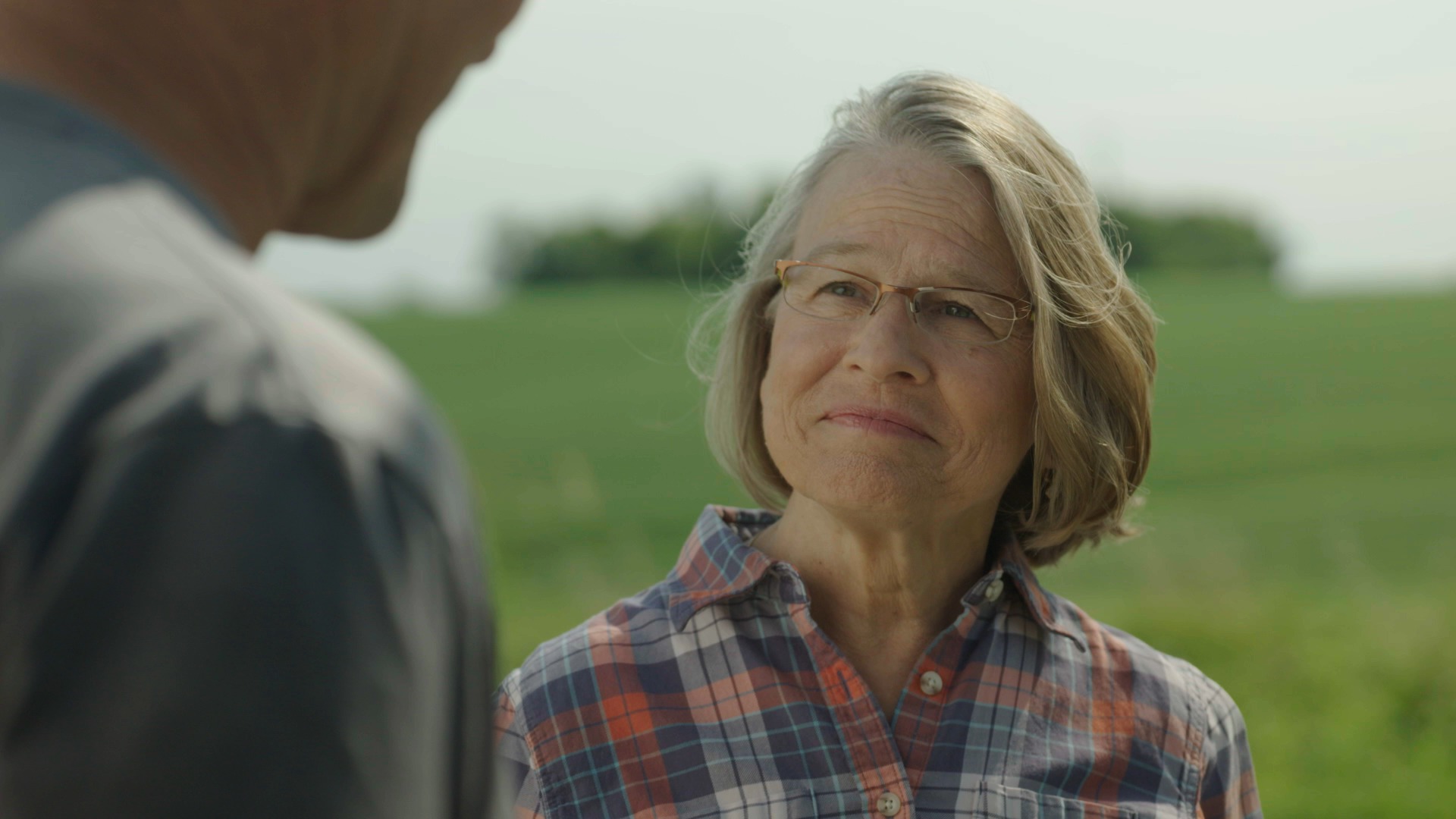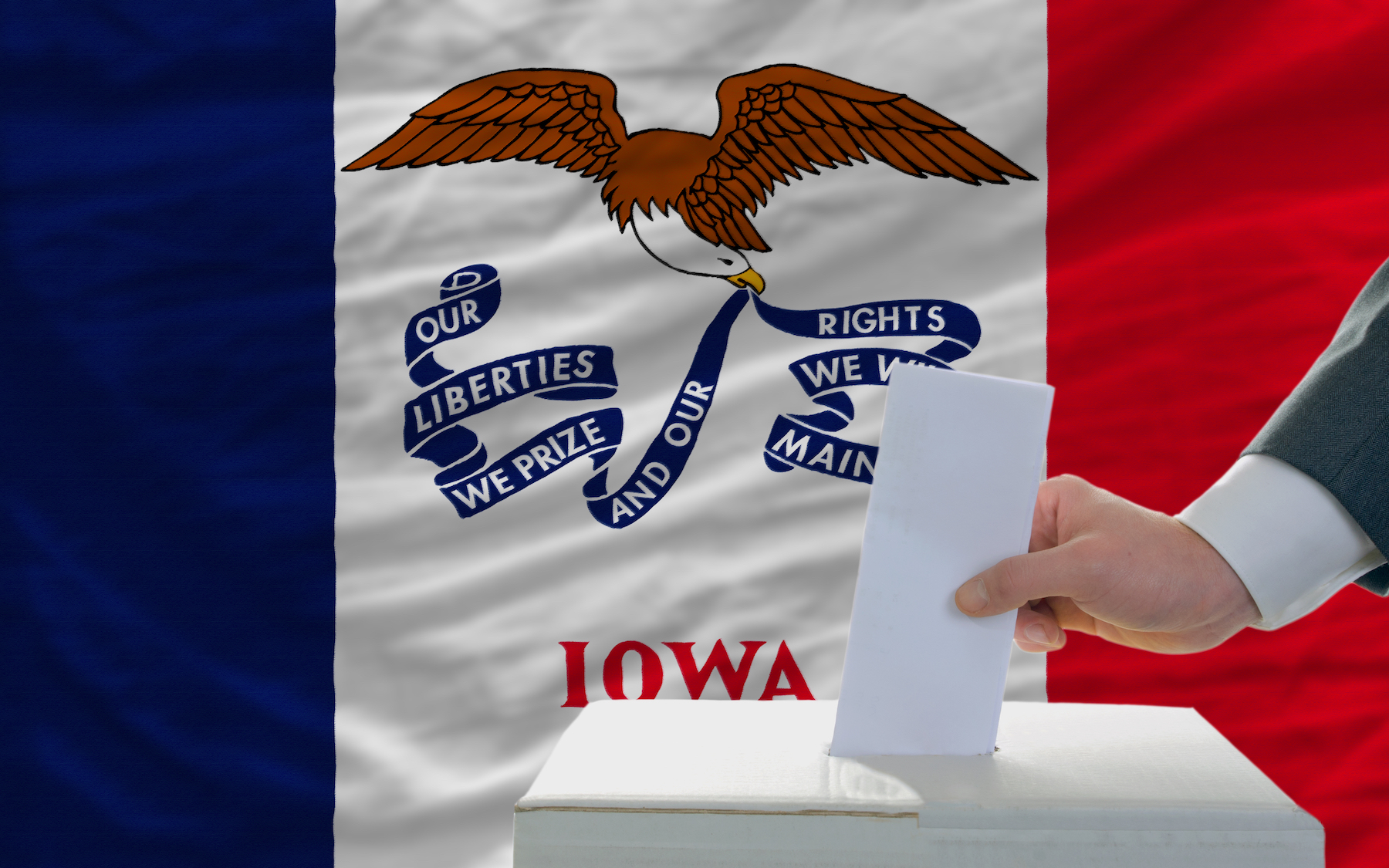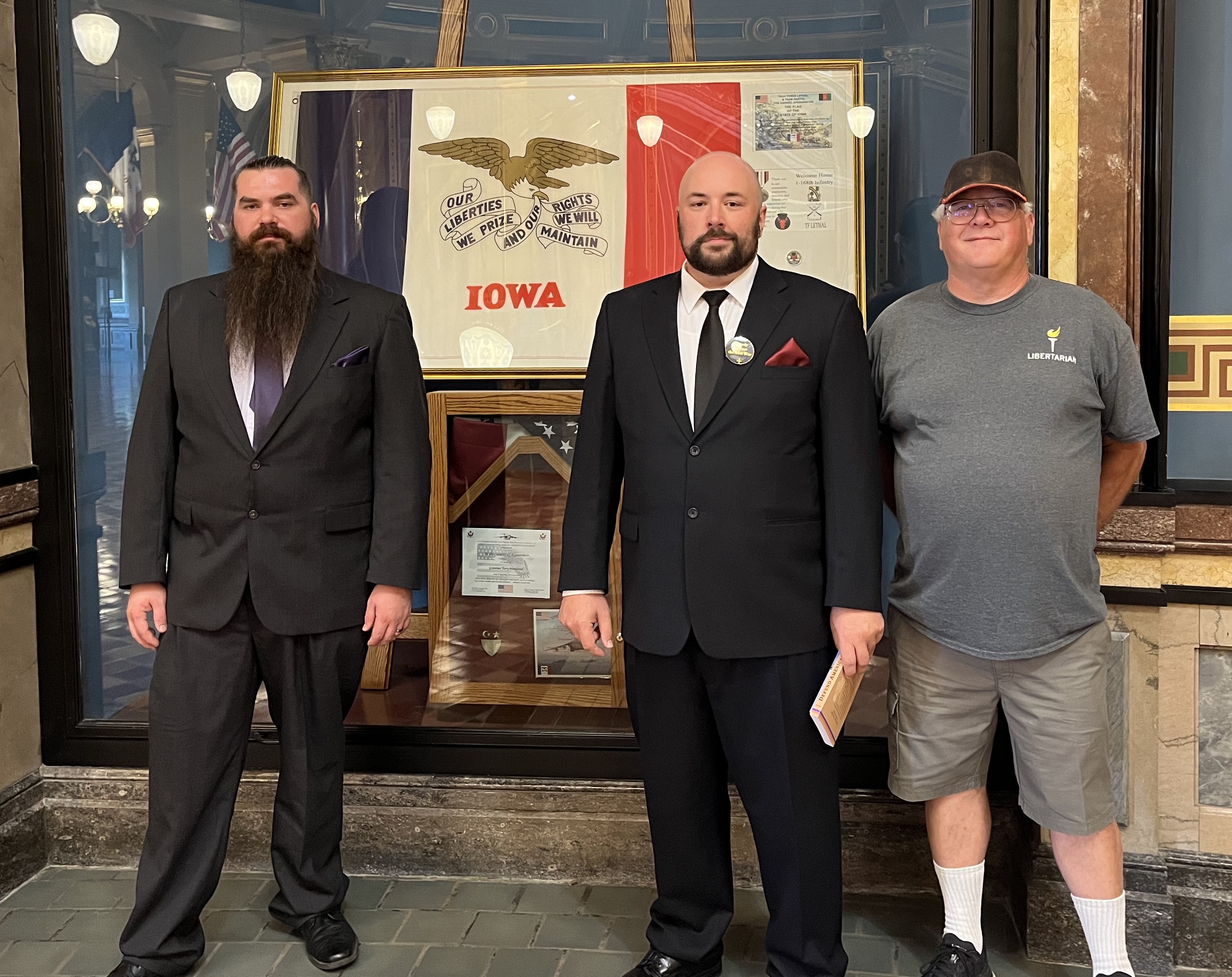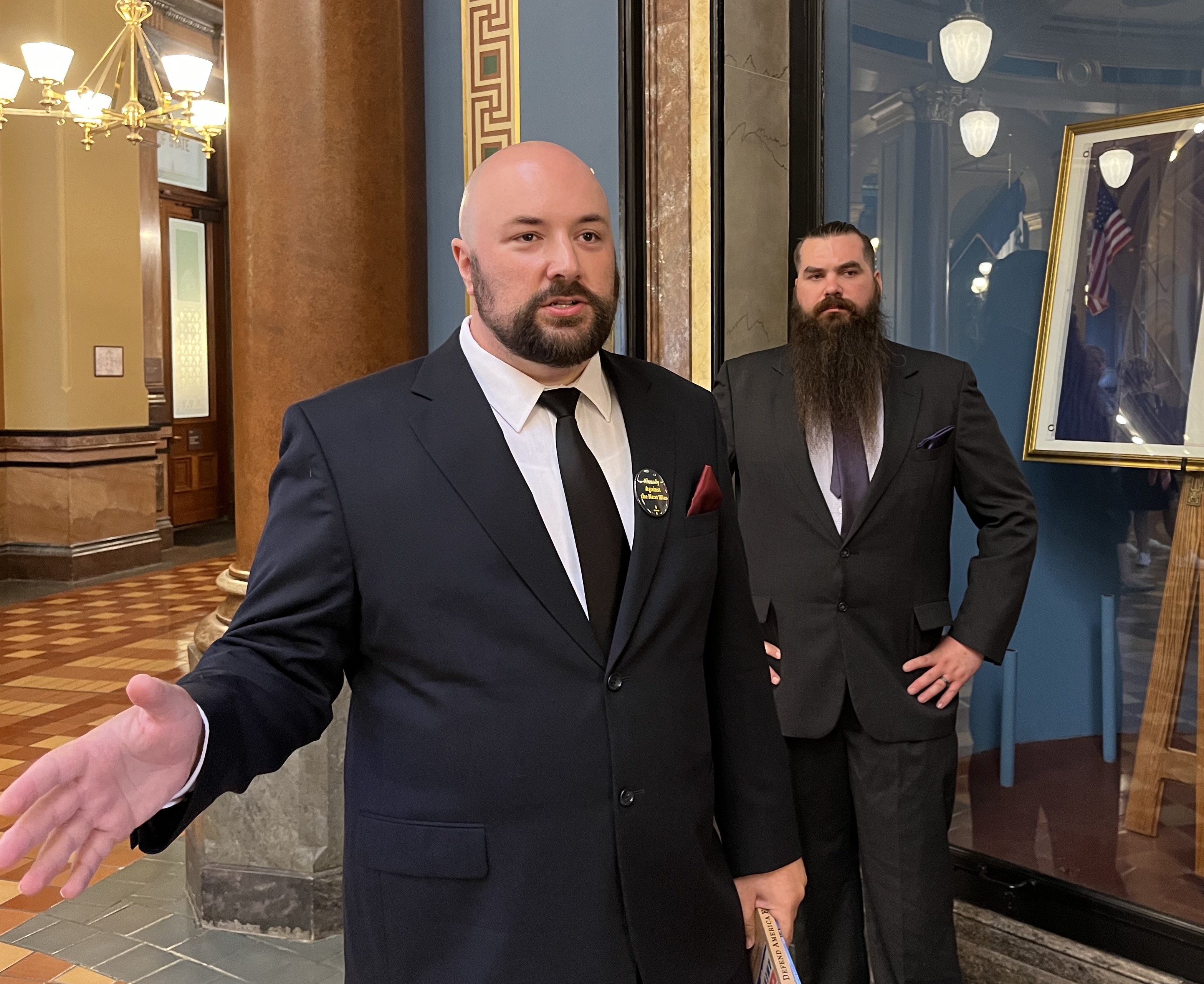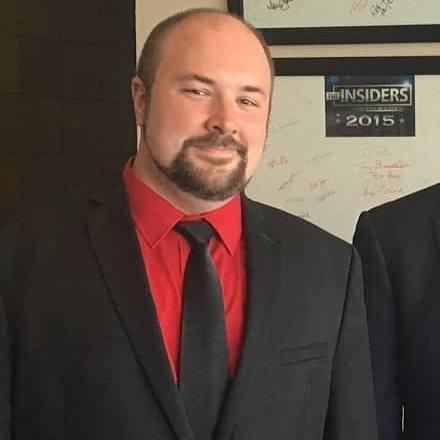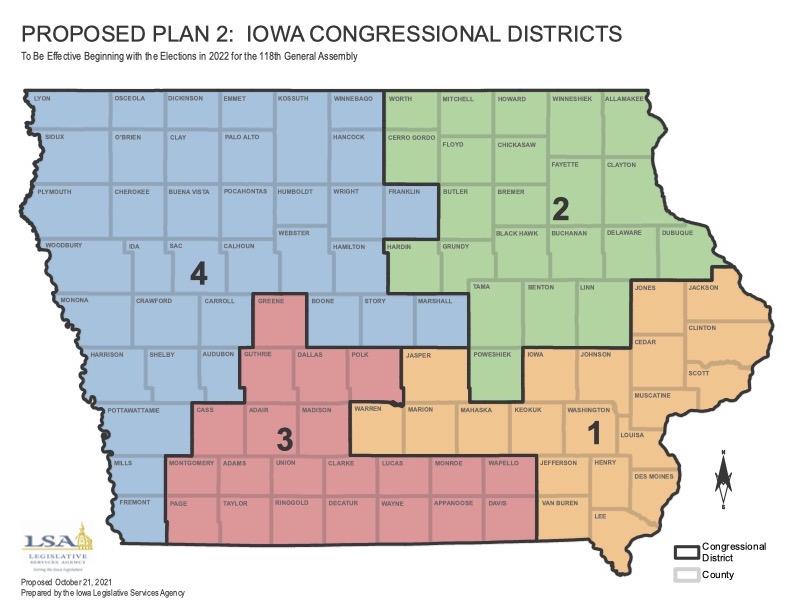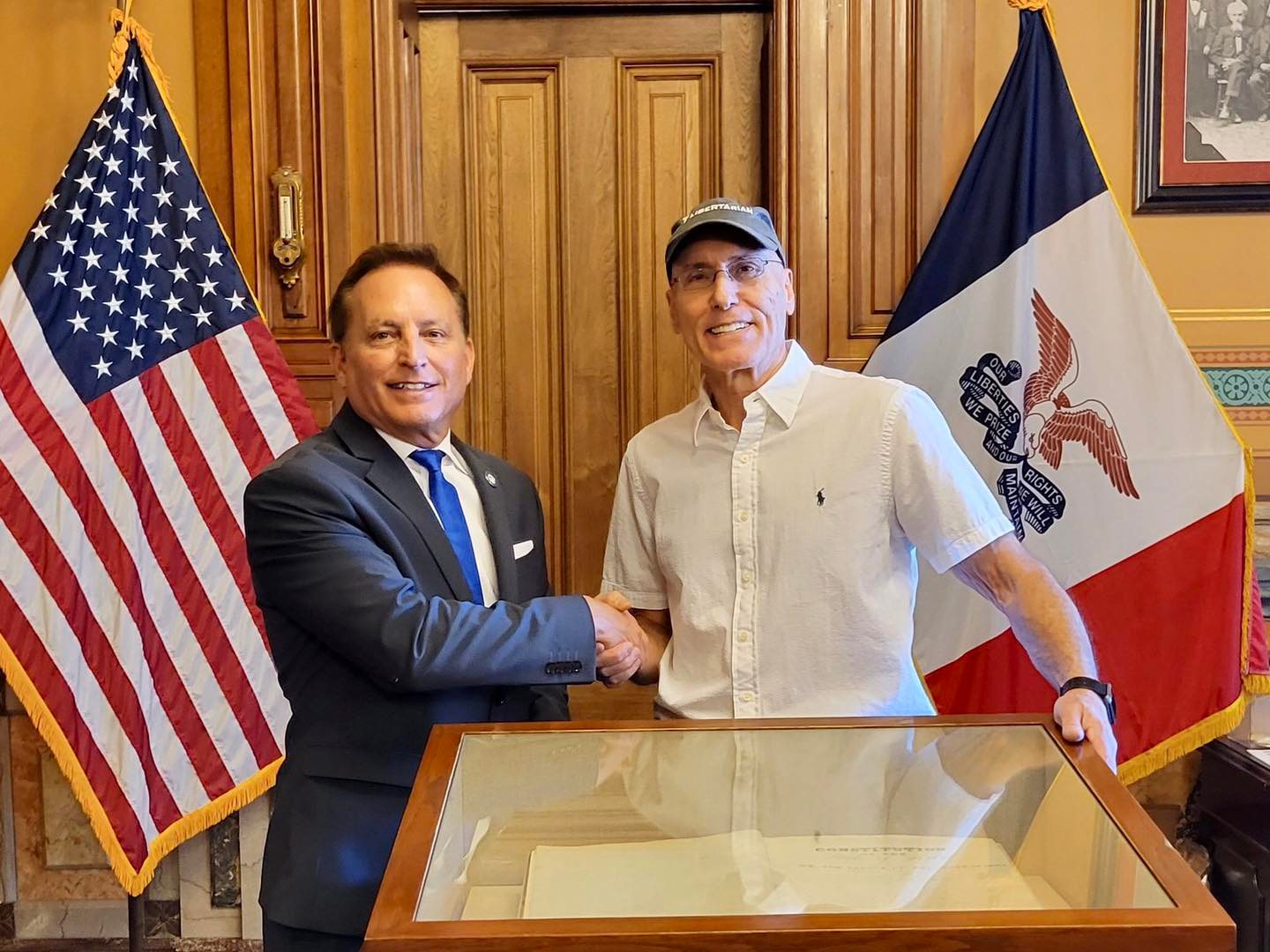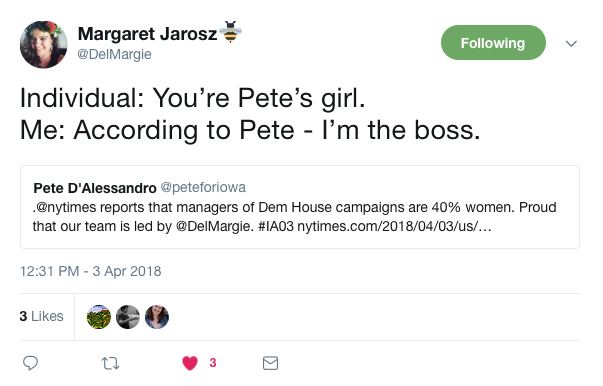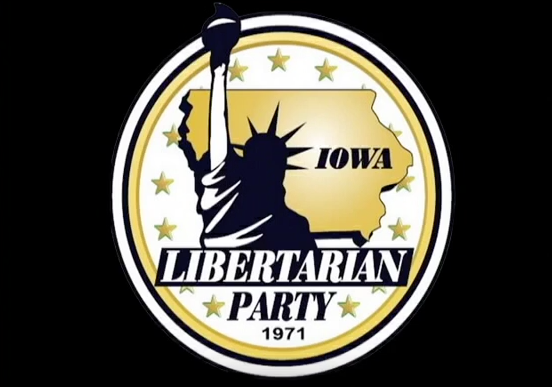Second in a series interpreting the results of Iowa’s 2024 state and federal elections. This post has been updated with certified results as of December 2.
The successful Republican effort to knock Libertarians off the ballot in three U.S. House districts may have influenced the outcome in at least one of them.
All three affected Libertarian candidates—Nicholas Gluba in the first Congressional district, Marco Battaglia in the third, and Charles Aldrich in the fourth—indicated that they would continue to run as write-in candidates. Unofficial results show write-in votes for Iowa’s four U.S. House races this year totaled 3,616—about 0.23 percent of the 1,602,409 ballots cast for a Congressional candidate.
When Libertarian candidates have been on the ballot for recent Iowa Congressional elections, they have typically received 2-3 percent of the vote.
AN IMPORTANT FACTOR IN THE FIRST DISTRICT
In IA-01, unofficial results show Republican incumbent Mariannette Miller-Meeks leads Democratic challenger Christina Bohannan by 796 votes (49.98 percent to 49.79 percent). Bohannan has not conceded, and the race has not been called. But it’s unlikely that enough provisional ballots remain to be counted for her to overtake Miller-Meeks. Iowa no longer counts absentee ballots that arrive after election day.
Continue Reading...
